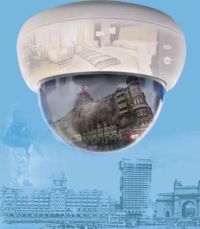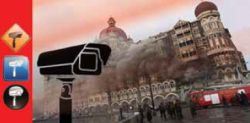This article is published with the kind permission of “Defence and Security Alert (DSA) Magazine” New Delhi-India
166 people were killed in the twin attacks on the Taj Mahal Hotel and the Trident Oberoi Mumbai. There were twin bombings in Jakarta Hotels namely Ritz Carlton and Marriott. Suicide bombers killed 8 persons and maimed 50. The 26/11 terrorist attack on the two Mumbai Hotels — The Taj and The Oberoi Trident was majorly responsible for exposing the vulnerability of the hospitality industry to such malicious man-made attacks. But has the incident changed the perception of the hospitality sector regarding their vulnerability to such attacks and security incidents? The writer takes stock of security enhancement in the hospitality sector, which has in recent times become a prime target of terrorist attacks and laments the attitude of trying to do the bare minimum essential to meet regulatory requirements.
 |
| Click to enlarge |
Hotel security in India is definitely in a state of high alert. A visit to the Taj Mahal Hotel will make you aware of how the hotel has become a fortress. Oberoi Trident, which we happened to visit in January 2011, appeared to have taken steps to ameliorate upon the security surveillance systems. The 26/11 attack has changed the perception of security in the hospitality sector.
166 people were killed in the twin attacks on Taj Mahal Hotel and Trident Oberoi. There were twin bombings in Jakarta Hotels namely Ritz Carlton and Marriott. Suicide bombers killed 8 persons and maimed 50.
The 26/11 terrorist attack on the two Mumbai Hotels – Hotel Taj and Hotel Oberoi Trident was majorly responsible for exposing the vulnerability of the hospitality industry to such malicious man-made attacks. The incident garnered global attention as countries across the globe condemned the incident. It took a while for the two hotels to refurbish their premises and resume their operations. But has the incident changed the perception of the hospitality sector regarding their vulnerability to such attacks and security incidents?
I was recently staying at Hotel Keys in Thiruvananthapuram and was amazed at the security arrangements in the hotel. Instead of a key, the hotel gave me an access card. This card had to be inserted into a slot in the lift — only when the green light blinked could one press the floor number on the lift. The access card had to be inserted into a slot inside the room to get the power connection into the room. An interesting aspect was that the instructions about fire safety were cogent — particularly the suggestion to crawl at the time of fire to avoid getting suffocated from smoke. This was a revelation.
The hotel was built post 26/11. The guest manager admitted that the 26/11 incident did push them to look at the security aspects in the design more forcefully. Hotel La Marvella at Jayanagar, Bangalore has built a state-of-the-art facility where the customer is spoilt for choice by way of state-of-the-art modern security surveillance systems. Not just that, the hotel seems to be a perfect blend of aesthetics and security.
Mumbai 26/11
Gadgets like CCTV Surveillance should serve as proactive tools to avoid a disaster but in reality, their usage is more reactive — to help the police nab the criminals.
Modern day criminal elements do not seem to consider gadgets like CCTV as a deterrent. The person who warned people in VT station not to proceed in the direction where the terrorist Kasab was stationed did display tremendous presence of mind that helped save lives. Technology may have advanced a lot, but nobody can dismiss the importance of human element in averting such incidents.
The 26/11 terrorist attack on the two Mumbai Hotels — Hotel Taj and Hotel Oberoi Trident was majorly responsible for exposing the vulnerability of the hospitality industry to such malicious man-made attacks. The incident garnered global attention as countries across the globe condemned the incident. It took a while for the two hotels to refurbish their premises and resume their operations. But has the incident changed the perception of the hospitality sector regarding their vulnerability to such attacks and security incidents?
Percival Edward, a security expert based in Bangalore says that the actions taken by hospitality sector post 26/11 were more of knee-jerk reactions. Installing security surveillance systems is not enough. Installing effactive security surveillance systems coupled with creating awareness among the hotel staff by way of intensive training is what is needed. Design aspects deserve greater attention. Another security expert says that some of the hotels try to cut corners by installing lesser number of cameras than what is required. Much less attention is paid towards minor details like position of the cameras, the capturing and storage of images, training, retrieval of images, capturing moving objects with excellent precision and installing cameras in common areas like lobbies, reception etc.
Though both Taj and Oberoi Trident have taken stringent measures to restore their premises and beef up the security, the same cannot be said about the other members in the hospitality sector in India. Fire safety and security surveillance must go beyond the need to “comply”.
We are a very compliance oriented nation. We wear helmets while driving a two-wheeler because there is a penalty if we do not wear it. Very few wear helmets because they are safe. In a likewise manner, the hotels should build fire safety and security surveillance as hygiene factors in their operations. It is not enough to do something to meet codes and standards or to get a “No-objection” certificate from the fire department authorities or the municipal authorities.
Worse is the fact that hospitality sector does not believe in regular annual maintenance contracts with the service providers. Says Chetan Nagappa who works for a security organisation, “At the end of the day everything boils down to cost. The hotel authorities will remember the service providers only when there is a problem; they are so intent on tightening their purse strings on matters related to safety and security that this attitude shocks us”.
The hospitality sector should look at the consequences in the aftermath of an accident. How will it impact their brand? How long will it take to rebuild the hotel in case of property damage? Global insurance companies like FM Global do talk about resilience — the ability to bring back a damaged property back to shape, but in India, the insurance companies seem to be more concerned about losses and claims. Our question is — why not look at prevention through robust risk management and prudent underwriting norms?
The situation in some of the lesser known second rung hotels is even more alarming. It doesn’t help that there is not a single designated authority to conduct periodic checks or audits. One is not sure if hotels have a disaster response plan in place.
 |
Nagesh, a security expert based in Bangalore, feels that there are very few people who have realised the need to make their properties fail-safe or security safe. He agrees that there are limitations that the hospitality sector faces in terms of foolproof security measures. Security has always been on top of the agenda in the 5‑star and highend hotels, but the 26/11 incident has made them realise the importance of maintenance.
The mid-range and lower end hotels install CCTVs only to comply with regulatory norms. He even adds that most of the 5‑star hotels are not aware of what they exactly need. So, the thinking of the hospitality sector has to change
Nagesh regrets that other than these top-end hotels, the efforts of the mid-range and lower range hotels in the hospitality sector to improve the security measures are only for namesake. Windsor Manor hotel in Bangalore refurbished their security surveillance post the 26/11 incident. He says that earlier hotels neglected maintenance but after 26/11 they have realised that maintenance is important too.
According to Nagesh, the mid-range and lower-end hotels install CCTVs only to comply with regulatory norms. He even adds that most of the 5‑star hotels are not aware of what they exactly need. So, the thinking of the hospitality sector has to change. The thinking should not be restricted to looking at the criteria required or meeting the norms. The need to install security systems under pressure from Fire Department or legal cell should be replaced with the need to enhance security surveillance to take care of their employees, guests, their properties and also the surrounding properties. The buildings adjacent to such hotels are also subject to collateral risks. This cannot be ignored.
Reinsurance and terrorism pool
It is strange that the 26/11 incident has not made the Government or the Home Ministry announce broad guidelines about security to the hospitality sector. More so, when the Government knows that the terrorism pool managed by GIC Re paid a loss of Rs. 400 crores to the affected parties after the 26/11 incident. It is strange that even insurance companies haven’t done much in this area to press for a mandatory guideline in all hotels. The insurance sector seems to have consoled themselves to the fact that — of the loss that was paid, Rs. 300 crores was recovered through reinsurance. I feel this sort of thinking needs to be eschewed. Imagine a large country like ours with so many mouths and hungry stomachs to feed spending crores of rupees on paying insurance claims for five star hotels.
Just imagine, the cost of setting up an appropriate safety and security surveillance in a luxury 5‑star hotel won’t even be 1 per cent of the claim amount paid by GIC Re from the terrorism pool. Yet, the reaction of the hospitality sector in the aftermath of the 26/11 incident continues to be lukewarm.
While some hotels are using the tags of “Ecotel” hotel, “Green Hotel” as a means of enhancing their brand equity, it is inscrutable that they do not bandy about safety or security as a component of their brand. While no one expects them to divulge the internal details of what they have done in terms of upgrading their security surveillance, at the minimum, some statements from some of the big players in the hospitality sector would have triggered actions from the sleeping members of the hospitality sector. I am sure that this is not a tall order.

 von
von 